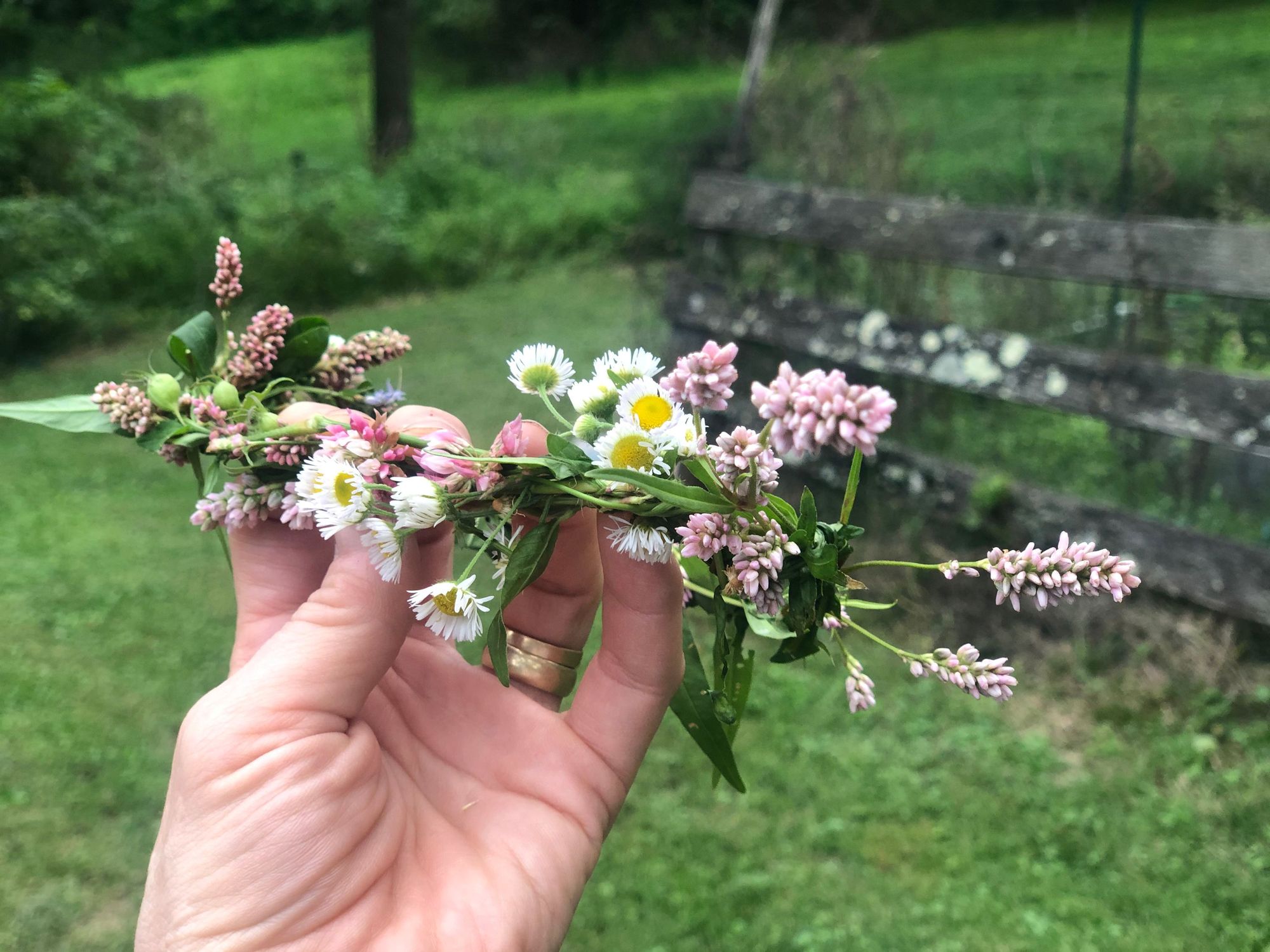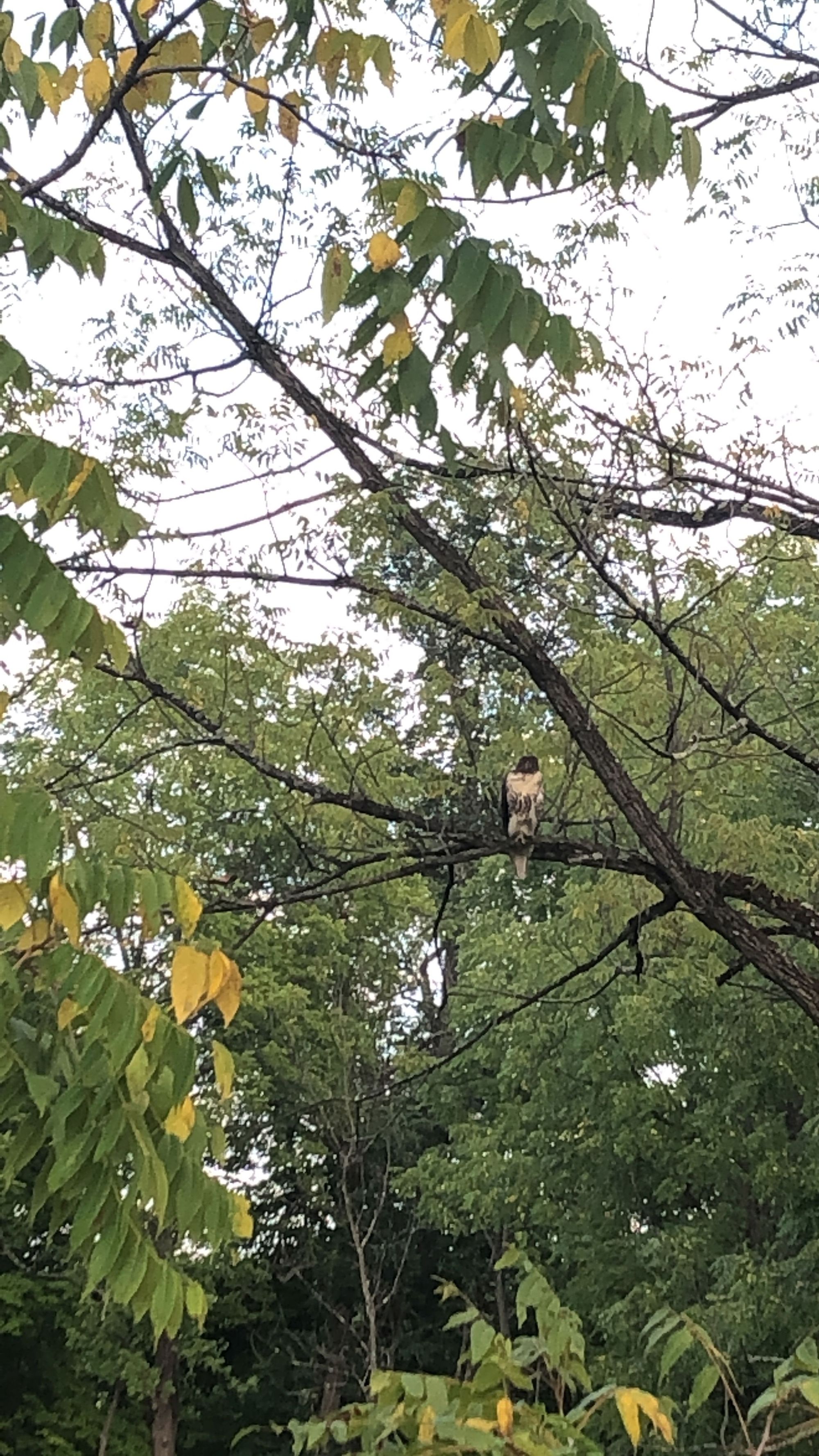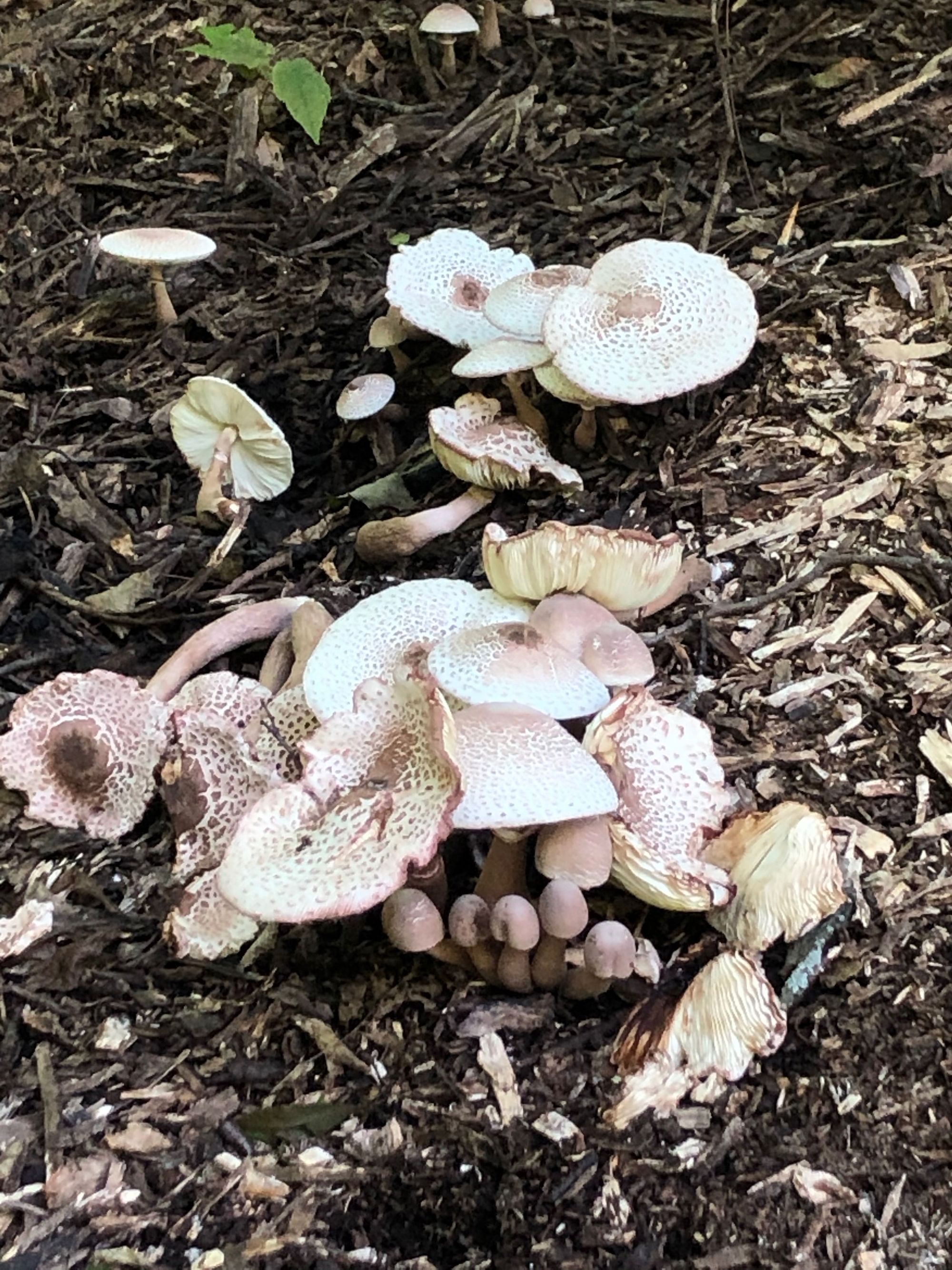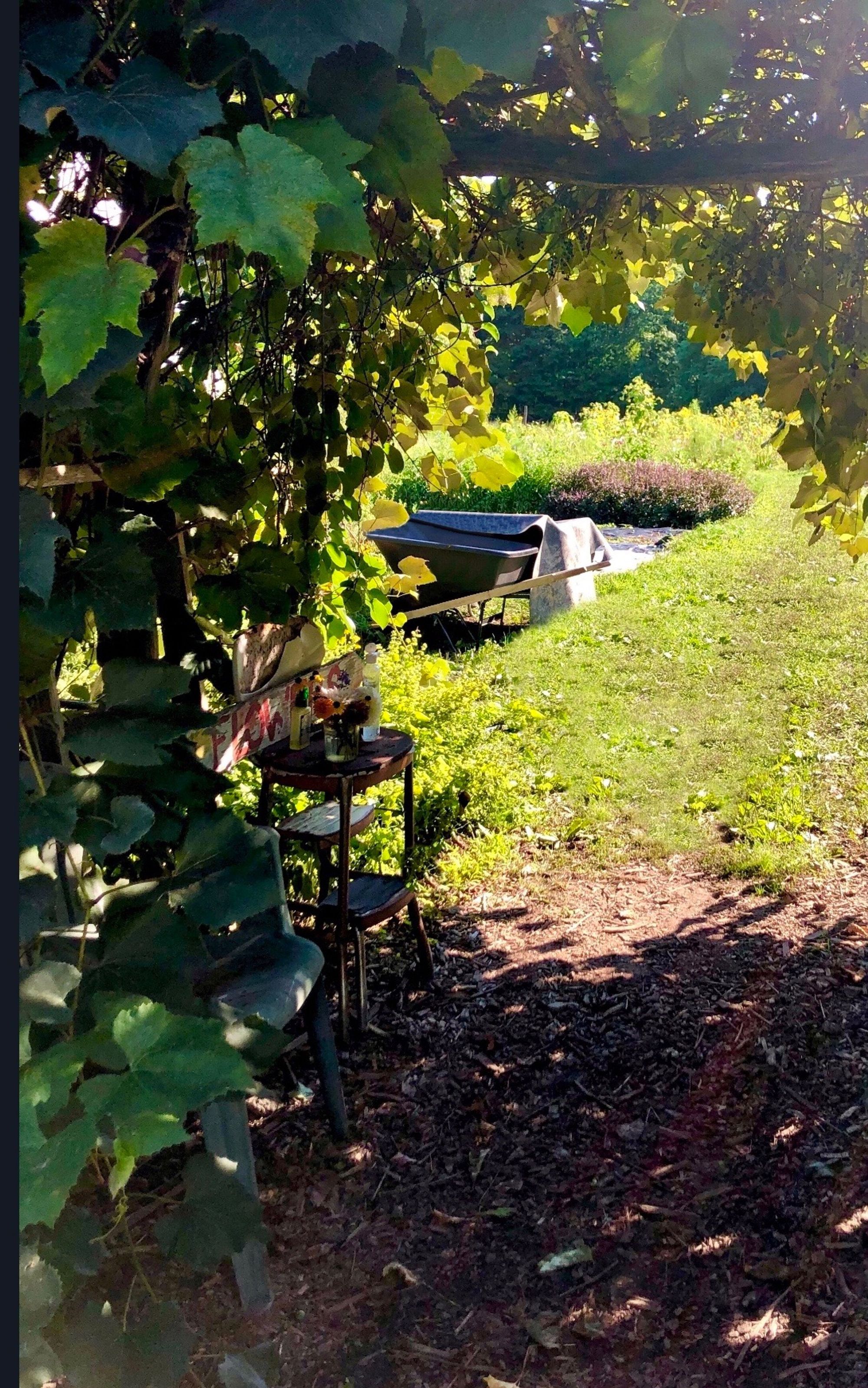Atmospheric Disturbances: A Conversation Between Elissa Schappell and Jenny Offill
Longtime friends and collaborators talk about anticipatory grief, extinction, and the climate rebellion during a socially-distanced stroll through the rolling hills of upstate New York
The last time Jenny Offill and I saw each other was in Manhattan at a meeting of XR Writers Rebel NYC, an offshoot of Extinction Rebellion, which Offill helped spearhead. That was seven months ago, the longest we’ve gone without seeing each other in over twenty years. When the pandemic broke out, she was the friend I most wanted to talk to. Not surprisingly, lots of Offill’s friends, unable to imagine forward what the future would look like, were reaching out to her. Jenny has made a career of masterfully distilling the ways ordinary people, who find themselves suddenly citizens of catastrophe, must go about the business of living their lives. In Dept. of Speculation the crisis is intimate and domestic, a husband's infidelity threatening the family unit. The crisis the narrator of Weather is confronting is both emotional and global—beyond the family drama, Donald Trump is president, fascism is spreading, and hopes of stopping the climate emergency are dwindling. Of course we wanted to talk to her. This is where we live now.
Offill’s critically acclaimed novels, Dept. of Speculation, which was singled out as one of the 10 Best Books of 2014 by the New York Times Book Review, as well as shortlisted for the Folio Prize in the UK, the Pen/Faulkner Award, and the L.A. Times Fiction Award, and Weather, which was a finalist for this year’s prestigious, international Women’s Prize, have been among those most cited as inspiration for the popularity of novels composed of fragments.
Shortly after New Yorkers were ordered inside to “shelter in place” I called Jenny. In the middle of commiserating about the stress of having older parents, her voice took on the quiet urgency I associate with EMTs speaking to people in shock. “Don’t normalize this,” she said. “It may have been inevitable, but it’s not normal.”
I was thinking about this as my husband and I drove upstate to see Jenny and her family this past August. They'd left New York a few years ago, not because they were sure this day would come, but it was a consideration. Since the pandemic began in March, they’ve watched caravans of New Yorkers fleeing the city seeking to relocate.
Offill’s house, surrounded by meadow and unmown fields, backs up against the woods, far enough from the highway that you can hear birds and, at night, pick out the constellations. Under a blue sky and hot sun we set off, in our surgical masks, walking six feet apart, to see the flower labyrinth. We talked about the books we were trying to read, the difficulty of making art now, and the dangers of eating mushrooms you’ve foraged yourself. The flower labyrinth seemed to appear out of nowhere. Marveling at the variety and abundance of flora I wondered out loud, How could our friends in the desert possibly prefer cacti and sedum to foxgloves and clover? Mesas to the woods?
“Well," Jenny said, not missing a beat, “One would do well to fall in love with a landscape that lasts.”
In the meadow, broken-down cars and worn tires peek out of the flowering grasses, sunlight shoots a rainbow off a hubcap. Behind an old barn a VW bus rusts in peace surrounded by Queen Anne’s Lace. Black-eyed Susans and daisies have overtaken a tan sedan, looking less junked than left behind by a driver too drunk to remember where they parked it. Best of all is an old truck, it's popped hood, despite the elements, remains an exuberant red, its doors flung open so that it appears to have been hijacked by the great mass of morning glory vines and goldenrod that gleefully fill the cab. The cars seem as at home in the landscape, a post-apocalyptic Eden, as the rocks and trees, as the hawk, staked out in a giant sumac, surveilling me as I shoot pictures. Nature takes back what is hers, reclaiming her territory.

I didn’t realize it until I looked at your three novels together, Weather, Dept. of Speculation, and Last Things, which was published twenty years ago, that the theme of extinction runs throughout all of them.
Because the mother in Last Things was an ornithologist, I read all these books like The End of Nature. At the time they felt really apocalyptic to me, and they didn't even feel very possible. This has been percolating for a long time.
It seems like another lifetime ago that we were sitting around a table in the Center for Fiction talking about the XR Writers Rebel Book Club and how we, as writers, could change the way we talk and write about climate.
This existential emergency that affects everyone on the planet.

You are the first person I heard use the term “Sixth Extinction.” The Earth has already gone five rounds! Now, seeing the transformation the planet has undergone over these past few months… Right now millions of people are dying in a global pandemic that, in disproportionate numbers, hits those hardest hit by climate change—people of color and poor people—it's terrifying.
Yeah, and now the West is on fire.
[As of this writing, over 3.3 million acres have burned in the California wildfires.]
I have to confess that I was embarrassed that at our first Extinction Rebellion meeting, when we were going around the table introducing ourselves and saying why we’re into environmental activism, some saying eradicating social and economic injusticeI, I said, I can’t stand the idea of living in a world without orangutans.
Well, that seemed to me as good a reason as you could possibly have.
Sounds like the fancy of a privileged white woman. Some people feel that in fiction, the climate emergency is less urgent a subject than immigration, systemic racism, or the cancer of late-stage capitalism. Yet the ramifications of climate change affect all of us, and disproportionately poorer communities, indigenous people, and people of color.
I understand that critique, but part of me feels like it's not privileged to want biodiversity and beauty in the world. It's just human. Those things have been taken away from certain marginalized groups by extractive economies. Caring about that does not preclude caring about the people who are affected by these things.
In the beginning of the pandemic, when I was being interviewed about Weather, everybody wanted me to connect it to the pandemic, how would it affect climate activism? I said I can't do that. Nobody knows! Also, we're right in the middle of this terrifying tragedy so many people are dying from. We don't need anyone's hot take on what it will mean for the environment.
It’s easy when you live in a city to forget this exists [lingering at the edge of the meadow where the woods begin, you can see the rising slope of mountains. If you’ve been forced to shelter in place in a city apartment, just walking in nature, my heartbeat is slower, my shoulders have dropped].
The landscape that supposedly is most relaxing to the majority of people is a place that’s half field, and then you see the trees or the forest. You want that open space so you can see what's coming towards you and feel safe that nothing can sneak up behind you. Ideally you can look all the way out to water. I think they call it places of refuge and solace. Forested places are often really amazing but a lot of people are scared of them.
One of the reasons I like living here is that it looks very, very much like where we lived in Massachusetts when I was a kid. This is the landscape that I ran around in. That was just that kind of 70s parenting. It was great, really fun. So as soon as I saw this place I was like, Oh, I want my daughter to be able to roam. They're probably the same plants, probably the same flowers. I remember specifically going into the woods to look for lady slippers. Those were very exciting.
There are all sorts of mushrooms in these woods. Do you ever eat them?
No. As far as I can tell it is very bad to be an amateur mushroom forager. I have a healthy respect for the fungus world.

Your husband has been recording all the wildflowers and weeds on the property now for years, so you should be able to tell. At last count I think it was 131.
He’s been teaching himself in that old-school amateur botanist way. It turned out to be a great pandemic hobby. He'd already been doing it for a year, but it turned out to be the best possible project to be involved in now because you could still go and do it when you couldn't do anything else.
I remember last time I was here pointing out some Lady’s Thumb, and you saying, "Yeah, I actually know that because he recorded that one."
Oh, that's funny because my problem is that I don't remember anything unless I write it down. That's why I pack so many little tidbits of information into novels I write—things that would otherwise just fly away. Even though if you'd asked me in April when we were walking a lot and he was pointing things out, I would’ve been like, Oh that’s this…” I don't remember any of them now. I know poison ivy: Leaves of three, beware of me. That's the extent of my naturalist knowledge. In that way I'm like the anti-naturalist.
So, the narrative form you’ve chosen to write your novels…
Is born out of having a terrible working memory. The part of me that doesn't retain data very well means I could never be any kind of scientist.
You know I have this fantasy of a day when we don’t just commemorate the end of wars and the deaths of famous men, we also pay our respects to the vanished Chinese Water Dolphin. Grieving children will wear black armbands to school to memorialze the passing of the last passenger pigeon.
I love that idea that we would actually have real rituals. I remember some activists years ago saying people always remember where they were during these events that changed things—the JFK assassination and for us, 9/11, but most of us who aren't scientists don't remember where we were when the Larsen B Ice Shelf collapsed, and that’s such a significant moment in terms of the climate crisis. There should be some sort of ritual or remembrance to that—we don't know how to do any of that.
Geophysicists studying glaciers discovered they could seismically record the multiple tones, referred to as “singing.” The rapid rise of the world’s temperature has dramatically altered the glaciers eco-acoustics, transformed song into a groaning dirge. Maybe we can play that when the next big shelf gives way and sinks into the sea.
November 30th is Remembrance of Extinct Species Day. It was started by a theatre group in England called Feral. One of the women said she saw in a natural history museum, the thylacine (or Tasmanian Tiger). And she said she felt looking through this glass at it, that it was so sad and so undignified, she should break the glass and carry the body out and burn it on a pyre and have some kind of ritual.
A collective mourning.
And so now they have these gatherings around the world where on that day small groups of people gather together. Sometimes it's processional—they will make a giant passenger pigeon or make a Tasmanian Tiger and they all say the name of the animals that have gone extinct.
That’s a lot when you consider the frogs, fishes, insects….
My guess is they don't manage it with all the insects. What do they say—What can we know about the mind of God? Well, he's inordinately fond of beetles. People have all these stories about extinct animals. They keep seeing them, and they think they still live in these remote places. And every once in a blue moon it turns out to be true. Not often, but obviously it's very exciting when it happens.
There's some really interesting work being done by artists and people in the humanities about how to actually even acknowledge that this grief exists, much less how to express it, about all the things that we're losing or have lost. That’s much of what I was writing about in Weather, anticipatory grief and anticipatory dread. People are trying to conceptualize these ideas. I feel like we need everything right now. We need the people that are doing the hard science. We need the people that are writing the non-fiction that really lays out the facts and I think you need these imaginative projects too.
There a sound artist in Alaska, Matthew Burtner, who composes “glacier music” mixing instrumental tracks with sounds of glaciers melting: streams of water that fade to trickling, reverberations of ice cracking and splitting apart, a thundering crescendo of tons of ice sinking into the sea. It’s profoundly moving. Some people find it relaxing. Personally, I find it excruciating.
That sounds really interesting. I wonder with the pandemic, which everyone worldwide is experiencing in some shape or form, it's going to be so strange to see the art that comes out of it because that sense of privately going through something and trying to transmute it into something that you could make into a public object, that just doesn't exist in this case.
You think about the AIDS epidemic and all the revolutionary art that came out of that time, even as it laid waste to a huge swath of brilliant artists, writers, musicians.

I found another project which you’ll like—The Bureau of Linguistical Reality. It recommends that people come up with neologisms for emotions and observations that they're experiencing in the Anthropocene that they don't think there's a word for. One is Gwilt which is when you feel sorrow looking at a plant that has died because of not having enough water.
I am on more than nodding terms with gwilt.
And there's Shadow Time, which is something that I thought about a lot when I was writing Weather, which is basically that whenever you're having one of those normal forward-thinking conversations, like one day when this, this, and this, then—there's this sense now because of the climate predictions that that future may not exist. Or, that the future may exist but it may be unrecognizable by the time you reach it. So, that's shadow time.
That’s the time we’re living in right now.
Right. I was thinking about both of those things when I was writing Weather. I'd come across them both. And then I think the one that has actually kind of crossed over a little bit into public consciousness is Solastigia. It's the same root as nostalgia and is basically homesickness for your home not being how it always has been. Like the landscape has changed. The terrain has changed. Maybe things flower earlier. Maybe the same birds aren't there. Instead of a nostalgia that comes from you moving away from something, it's a nostalgia for the things have moved away from you.
Subscribe to Broadcast